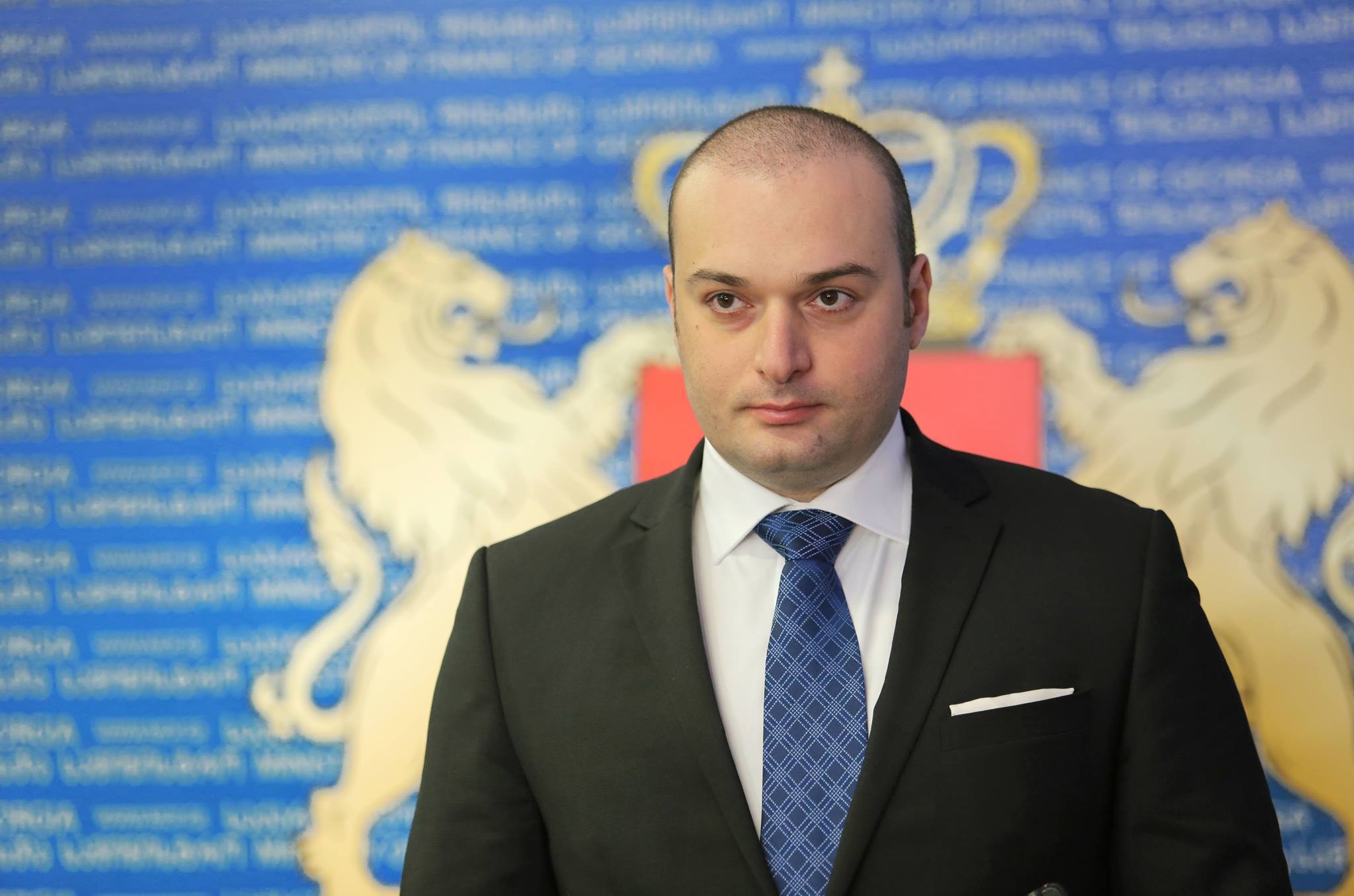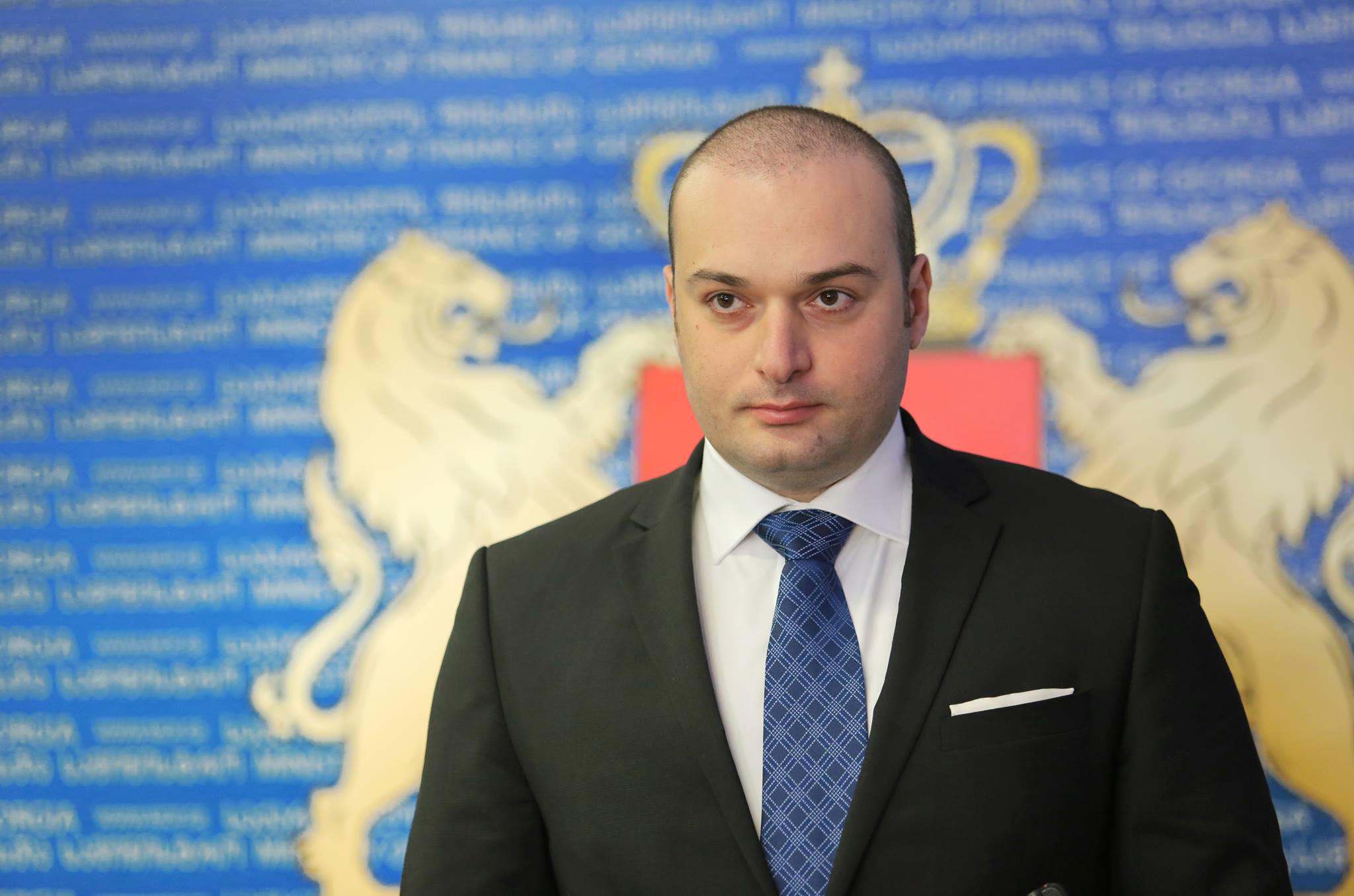

Georgian Prime Minister Mamuka Bakhtadze has announced his resignation in a post on Facebook. According to Georgian Dream officials, his successor will be announced on Tuesday.
Bakhtadze announced he was stepping down in a lengthy post on Monday.
He is the fourth Prime Minister to resign since Georgian Dream came to power in 2012. He served in the post for 14 months, prior to that he had served as the country’s Finance Minister.
‘The strategic framework for the country’s development has been created and implemented,’ Bakhtadze wrote. ‘Therefore I made the decision to resign as I think that for now, I have completed my mission’.
In his farewell post, Bakhtadze also thanked Georgian Dream Chair Bidzina Ivanishvili and spoke of Georgia’s accomplishments and the challenges that still face the country.
Later on Monday, he met with a small group of TV journalists.
In the meeting, he said that he ‘made the decision to resign’ after consulting with his team yesterday. Though, he also noted that he had discussed a possible resignation with Ivanishvili in late spring 2019.
He said he would remain a member of Georgian Dream but that he intended to leave ‘active politics’.
Criticism from the opposition
Opponents of Georgian Dream claimed that Bakhtadze’s resignation was not of his own doing..
‘We all understand very well that resignation was not Bakhtadze’s decision just like it wasn’t his decision to become [Prime Minister]. It was Ivanishvili’s decision’, said Sergi Kapanadze, an MP from the opposition European Georgia party.
‘All the repressions and persecutions, the closure of Rustavi 2, the political persecution of Khazaradze, Japaridze and Tsereteli, everything that will happen in the future […] all this serves one purpose — maintaining power’. Roman Gotsiridze, an MP from the United National Movement Party told journalists. ‘Bakhtadze’s dismissal serves this purpose as well’.
What will Bakhtadze be remembered for?
The ruling Georgian Dream party nominated Bakhtadze to succeed Giorgi Kvirikashvili as Prime Minister in June 2018.
During his tenure, Bakhtadze introduced a ‘small government’ initiative and pledged to reduce the number of ministries from 14 to 11, as well as to keep government expenditures ‘under 3.9% of GDP’. He said he hoped to save ₾100 million–₾120 million ($41 million–$49 million), which would be allocated to social programmes.
[Read about Georgia’s small government on OC media: Georgian PM names three newcomers for new ‘small government’ cabinet]
On 19 November 2018, nine days before Georgians went to the polls for the second round of the presidential elections, Bakhtadze announced plans to write off ₾1.5 billion ($570 million) in unpaid loans for ‘over 600,000’ people blacklisted by Georgian banks.
The move was widely labeled as ‘vote buying’ by the opposition and non-government organisations.
[Read more about the initiative on OC Media: PM promises to write off ₾1.5 billion in debts for 600,000 Georgians]
In March 2019, Bakhtadze announced a new initiative entitled ‘Education — road to freedom’. Bakhtadze said that education funding would grow gradually and reach a 6% of Georgia’s GDP by 2022 — a quarter of the state budget.
He said that he would sign a decree to guarantee that the reform will be implemented by successor governments as well.
In May 2019, the Georgian government allocated roughly ₾890,000 ($320,000) to celebrate a new religious holiday on 12 May — the country’s consecration to the Virgin Mary.
The declaration was the initiative of the Georgian Orthodox Church and was backed by the government. After being addressed by government, parliament convened an extraordinary session on 8 May and passed the bill in its third and final hearing.
[Read more about the new holiday on OC Media: Georgian government allocates $320,000 for new religious holiday]
In June 2019, Bakhtadze inspired the ire of queer rights activists over comments he made about Tbilisi Pride.
At a press briefing on 17 June, Bakhtadze said that the Pride march was being ‘artificially forced’ on Georgian society and that it served ‘an aggressive agenda’.
‘I don’t think that this [queer rights] is a problematic issue in Georgia. Georgia has corresponding legislation, and human rights are protected’, he said.
He added that the extent of homophobia in Georgia was being ‘exaggerated’, while the real problems Georgia faced were ‘occupation’ and ‘poverty’. ‘We’d rather focus on resolving these issues’, he said.
[Read more on Georgian officials failing to address queer rights: Georgian PM says homophobia is ‘exaggerated’ following last week’s homophobic siege]
A possible successor
Media speculation that Bakhtadze would resign started several weeks ago. On Monday, Georgian Dream MP Giorgi Volski confirmed that among other candidates, the ruling party was considering Interior Minister Giorgi Gakharia as Bakhtadze’s successor.
Anti-Putin activists have been demanding Gakharia’s resignation for more than two months. They hold him responsible for the violent dispersal of protesters by police on 20–21 July, during which two-hundred-and-forty people were hospitalised, including 80 police officers.
Two protestors lost sight in one eye while two were hospitalised with life-threatening injuries.
‘Gakharia’s appointment as a PM will trigger a new wave [of protest]’, Giga Makarashvili, one of the organisers of demonstrations in front of the Parliament, told IPN. ‘Which will be very painful for Georgian Dream, because no government has ever been forgiven for such mockery’.
Georgian media has also speculated that Gakharia’s successor as Interior Minister will be Irakli Garibashvili, Georgia’s Prime Minister from 2013–2015. Georgian Dream officials have not publicly commented on the claim.









